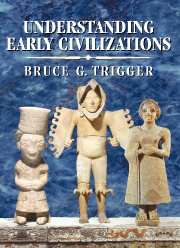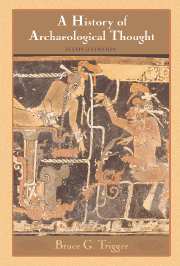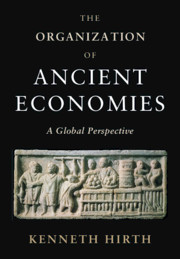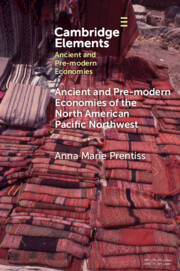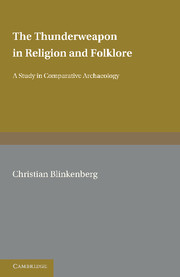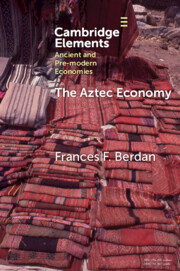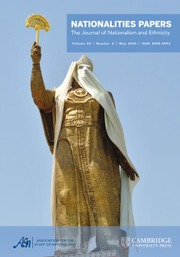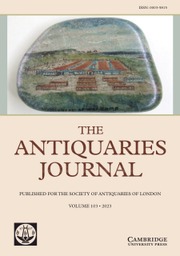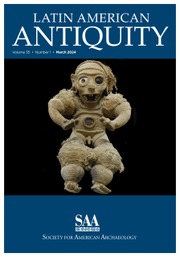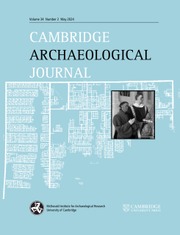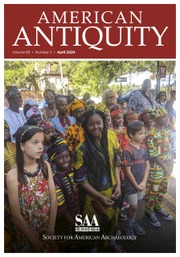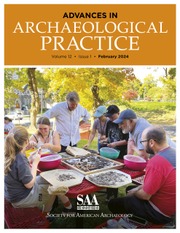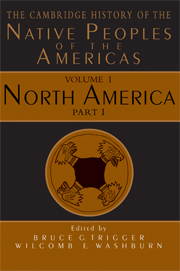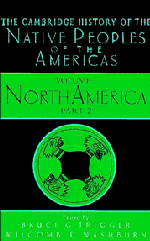Understanding Early Civilizations
A Comparative Study
$39.99 (G)
- Author: Bruce G. Trigger, McGill University, Montréal
- Date Published: April 2007
- availability: Available
- format: Paperback
- isbn: 9780521705455
$
39.99
(G)
Paperback
Other available formats:
Hardback, eBook
Looking for an examination copy?
If you are interested in the title for your course we can consider offering an examination copy. To register your interest please contact [email protected] providing details of the course you are teaching.
-
Arising independently in various parts of the world, early civilizations--the first class-based societies in human history--are of importance to social scientists interested in the development of complexity, while their cultural productions fascinate both humanists and the general public. This book offers the first detailed comparative study of the seven most fully documented early civilizations: ancient Egypt and Mesopotamia, Shang China, the Aztecs and their neighbors, the Classic Maya, the Inca, and the Yoruba. Unlike previous studies, equal attention is paid to similarities and differences in their sociopolitical organization, their economic systems, and their religious beliefs, knowledge, art, and values. Many of this study's findings are surprising and provocative. They challenge not only current understandings of early civilizations but also the theoretical foundations of modern archaeology and anthropology. Rival cultural and ecological approaches are demonstrated to be complimentary to one another, while a comprehensive understanding of human behavior is shown to require that more attention be paid to psychology and the neurosciences. Bruce G. Trigger is James McGill Professor in the Department of Anthropology at McGill University. He received his PhD from Yale University and has carried out archaeological research in Egypt and the Sudan. His current interests include the comparative study of early civilizations, the history of archaeology, and archaeological and anthropological theory. He has received various scholarly awards, including the Prix Leon-Gerin from the Quebec government, for his sustained contributions to the social sciences. He is an honarary fellow of the Society of Antiquaries of Scotland and an honarary member of the Prehistoric Society (U.K.). His numerous books include Sociological Evolution (Blackwell, 1998), Early Civilizations: Ancient Egypt in Context (Amer. Univ in Cairo, 1993), A History of Archaeological Thought (Cambridge, 1989), and The Children of Aataentsic: A History of the Huron People to 1660 (McGill-Queens Univ., 1976).
Read more- Comprehensive - first comprehensive study of how early civilizations worked
- Comparative - a major contribution to the comparative study of human behavior
- Challenging - calls into question conventional understandings of how a comprehensive theory of social behavior can be constructed
Reviews & endorsements
"This is a major work of anthropological archaeology. Its comprehensiveness of theme, readiness to pursue profound if difficult and sometimes not readily answerable questions, and impressive control of a wide range of sources, reflect distinguished thought and dedicated effort. It stands out among comparative approaches to early human societies for its breadth and systematicity...This is as good a place as there is for the next generation of scholars to obtain a solid introduction to the intellectual substance of a field of great breadth and promise. The book should act as a powerful stimulant to the revitalization of comparative studies." Robert McC. Adams, University of California at San Diego, The International History Review
See more reviews"Its comprehensiveness of theme, readiness to pursue profound if difficult and sometimes not readily answerable questions, and impressive control of a wide range of sources, reflect distinguished thought and dedicated effort. ...a major achievement." The International History Review
"Understanding Early Civilizations is the capstone of Trigger's remarkable archaeological career. No archaeologist is better qualified to undertake the challenging task of comparing seven ancient civilizations in such exhaustive detail. He has succeeded brilliantly. Trigger's effortless command of the literature and dispassionate approach to the complex theoretical issues ensure that Understanding Early Civilizations will become a classic. This is, quite simply, a definitive work." Brian Fagan, University of California, Santa Barbara
"Long acknowledged as the premier historian of the discipline of archaeology in the Anglophone world, Bruce Trigger now must be recognized as its most knowledgeable authority of early civilizations. Understanding Early Civilizations presents a highly specific and richly detailed comparative analysis of seven 'early civilizations' or early class-stratified states that are viewed as essentially independent examples of the development of complex society. His study is written in the grand evolutionist tradition that emphasizes similarities in the social, economic, and cultural structures of these early civilizations despite their idiosyncratic or specific manifestations. Trigger's study is monumental and magisterial. It is a work to treasure and digest for years to come." Philip L. Kohl, Wellesley College
Customer reviews
Not yet reviewed
Be the first to review
Review was not posted due to profanity
×Product details
- Date Published: April 2007
- format: Paperback
- isbn: 9780521705455
- length: 774 pages
- dimensions: 236 x 175 x 43 mm
- weight: 1.43kg
- availability: Available
Table of Contents
Part I. Introduction:
1. Rationalism and relativism
2. Comparative studies
3. Defining 'early civilization'
4. Evidence and interpretation
Part II. Sociopolitical Organization:
5. Kingship
6. States: city and territorial
7. Urbanism
8. Class systems and social mobility
9. Family organization and gender roles
10. Administration
11. Law
12. Military organization
13. Sociopolitical constants and variables
Part III. Economy:
14. Food production
15. Land ownership
16. Trade and craft specialization
17. Appropriation of wealth
18. Economic constants and variables
Part IV. Cognitive and Symbolic Aspects:
19. Conceptions of the supernatural
20. Cosmology and cosmogony
21. Cult
22. Priests, festivals, and the politics of the supernatural
23. The individual and the universe
24. Elite art and architecture
25. Literacy and specialized knowledge
26. Values and personal aspirations
27. Cultural constants and variables
Discussion:
28. Culture and reason
29. Conclusion
References
Index.Instructors have used or reviewed this title for the following courses
- Anthropology of Ancient Civilizations
- Archaeology of Ancient Civilizations
- Comparative Studies in Cultures
- EARLY CIVILIZATIONS: A COMPARATIVE APPROACH
- Early Civilizations of the Old World
- Forensic anthropology and Bioarchaeology
- History of Ancient Egypt and Mesopotamia
- History of Greek and Roman civilizations
- Old World Archaeology
- Rise and Falll of Ancient States
- Rise of Ancient Civilizations
- The Urban Revolution
- World Civilization I
- World History to 1600
- World Prehistory
Sorry, this resource is locked
Please register or sign in to request access. If you are having problems accessing these resources please email [email protected]
Register Sign in» Proceed
You are now leaving the Cambridge University Press website. Your eBook purchase and download will be completed by our partner www.ebooks.com. Please see the permission section of the www.ebooks.com catalogue page for details of the print & copy limits on our eBooks.
Continue ×Are you sure you want to delete your account?
This cannot be undone.
Thank you for your feedback which will help us improve our service.
If you requested a response, we will make sure to get back to you shortly.
×
